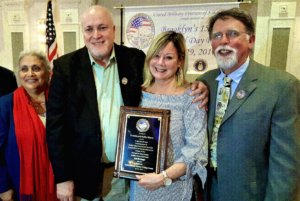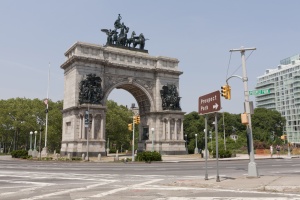In the wake of the third election this year that was marred by voting problems, good government groups and local elected officials have launched an effort to revamp voting in New York.
At a press conference held on the steps of City Hall on Tuesday, November 13, city councilmembers were joined by colleagues in the state legislature as well as by representatives of good government groups to kick off what they hope will be a successful effort to bring about long-overdue change in the way elections are conducted in the city and state.
The goal, said Assemblymember Brian Kavanagh, is to reform the election system from the moment a voter attempts to register to vote to the moment the ballots are counted, and, beyond that, stressed Susan Lerner, the executive director of Common Cause, To find a quick solution that can be put in place before the next election.
Citing such problems as long lines caused by insufficient or malfunctioning voting equipment, inadequate training and a dearth of poll workers, problems that went well beyond the issues caused by Hurricane Sandy, Councilmember Gale Brewer, the chair of the councils Committee on Governmental Operations, contended, All of this says to the public its a challenge to vote so dont participate.
The November 6 election was even worse than its recent predecessors, added Brooklyn Councilmember Jumaane Williams, who said he had been awakened at 5:30 a.m. by a phone call alerting him to the fact that some polls in his district werent operational.
Brandishing a photo of people crammed into a narrow corridor as they waited to cast a ballot, Williams stressed, There literally were fire hazards at poll sites.
Residents who waited as much as five or six hours to vote, said Williams, had told him afterwards, You told me to come out to vote. I came out and this is what happened.
While some problems cant be fixed by improvements in procedures, many can, stressed Williams, who cited poor planning as a factor that could be overcome by working with Board of Elections officials.
In fact, reforms being pursued range from alterations in day-to-day operations to make voting easier, to sweeping changes that potentially require not only legislative approval but also ratification by voters in a referendum.
The latter includes instituting early voting in New York. The vast majority of states, 32, already have such a system in place; nonetheless, it faces tremendous hurdles in New York, which yet ranks 48th out of the 50 states in percentage of voters, according to a 2010 report by the mayors office, starting with the necessity of being approved by two successive legislatures and then the voters.
Those at the press conference enunciated support for instituting early voting. Stressing, Imagine if we were a swing state, State Senator Liz Krueger contended that everything [including also mail-in ballots and making absentee voting simpler] should be on the table.
Imagine if we got the number of voters we want to be getting, she added.
More immediately, goals include changes in daily operations on the part of the BOE to make voting run more smoothly. These include more aggressive recruitment of poll workers (a whopping 35,000 are needed, something else that could be eased by early voting) as well as setting up a system of oversight over the BOE.
To that end, a bill sponsored by Brooklyn Councilmember Brad Lander would require BOE to report to the City Council. We measure everything else but we dont measure the Board of Elections, so its not that surprising that they would have disastrously bad results, he remarked, adding that, in his view, the presidential election was terrible, with long waits that, in some cases, were as bad as Ive ever seen it.
Another bill, sponsored by Williams, would require city agencies (already mandated to register eligible voters who contact them for other reasons) to report how many registration forms they have processed. Of 150,000 such forms distributed by the city, only some 2,300 were returned, said Alex Camarda, director of public policy and advocacy for Citizens Union. We dont believe they do this with any regular frequency, he noted.
Other bills recently introduced include ones requiring better notice to voters, requiring public schools to provide voter registration forms to parents, increasing publication of the Campaign Finance Boards voters guide to state and federal elections and creating a program that would allow BOE to employ city workers as poll workers.
Other possible reforms include eliminating voter cards (which are no longer needed, according to BOE), increasing access to technology at polls and enlarging election districts to streamline the process.
Recent changes BOE has made, at the urging of voting advocates, include increasing the font size on ballots and revamping its website to make it more user-friendly, as well as doing a second mailing to voters in October (the first time BOE has done so), creating a poll site locator and posting a sample ballot on line, noted Camarda.
Having held a hearing on October 15 at which the package of bills aimed at improving the voting experience were introduced, the City Council will hold a second oversight hearing on voting on December 5.
By press time, BOE had not responded to a request for comment.

 Generally Speaking: Bay Ridge resident named Brooklyn surrogate, Memorial Day Parade-ers honored
Generally Speaking: Bay Ridge resident named Brooklyn surrogate, Memorial Day Parade-ers honored  Captain America celebrates 75th birthday with statue in Prospect Park
Captain America celebrates 75th birthday with statue in Prospect Park